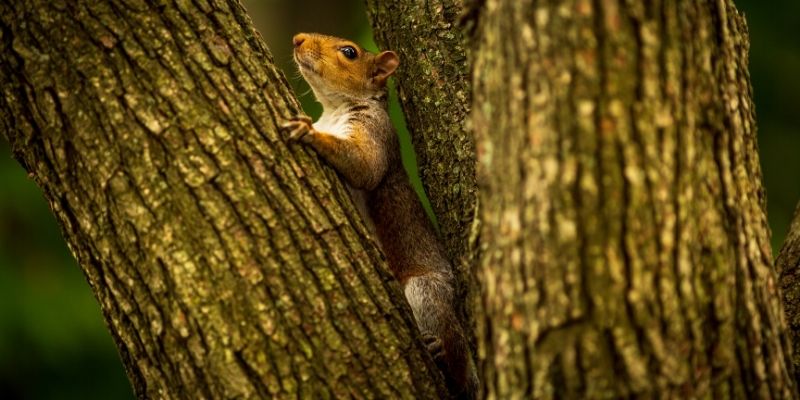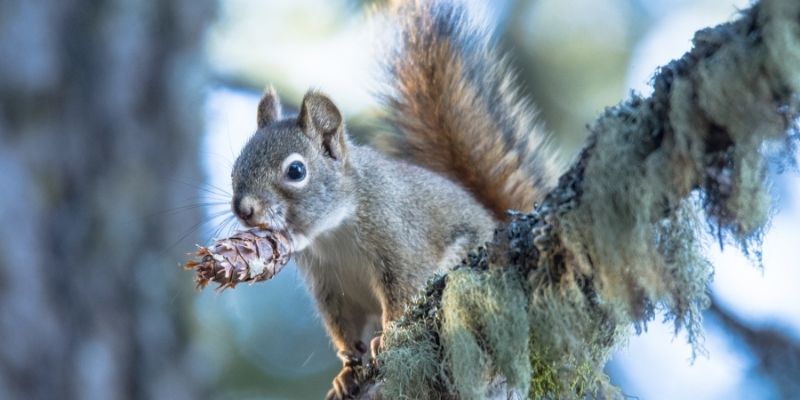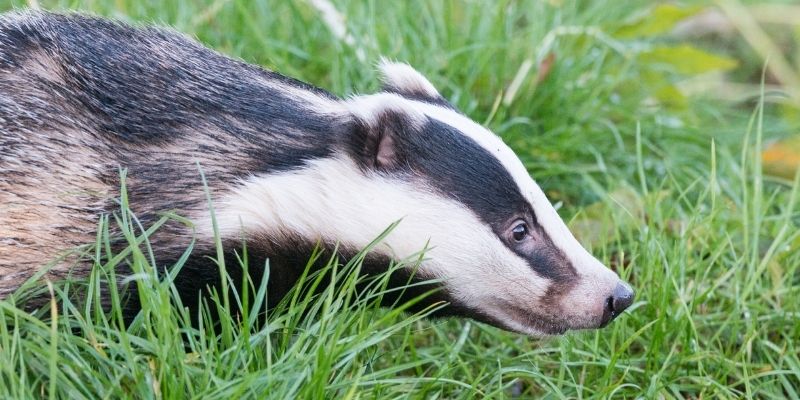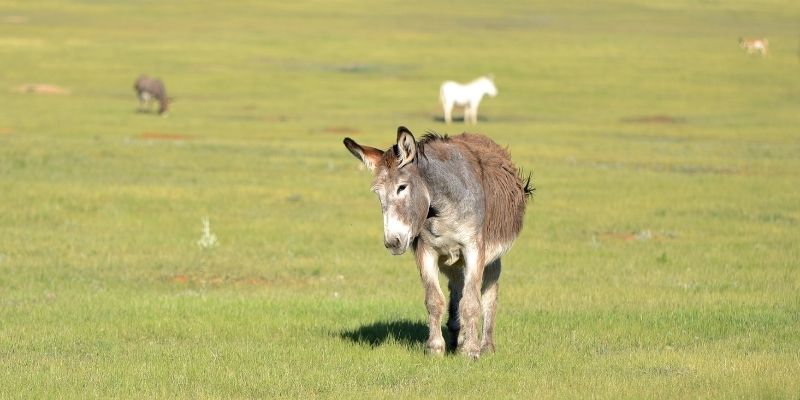How to Become a British Wildlife Rehabilitator
Having a passion for animals can lead you into many exciting careers as you channel your caring nature into a job that is worthwhile. One of the most meaningful roles in animal care is that of a Wildlife Rehabilitator. UK residents can pursue this career path with the right training, knowledge, and skills.
Becoming a British Wildlife Rehabilitator will involve caring for British wildlife animals that are unwell, injured, or orphaned. Essentially, you will nurse them back to their former, vibrant selves through rehabilitation. When deemed fit and well enough, these animals will be returned to their natural habitats.
If you adore animals and have a desire to rehabilitate them back into their natural habitat, then becoming a British Wildlife Rehabilitator is a career path that would suit you perfectly.
What Do Wildlife Rehabilitators Do?
Throughout the course of an animal’s life, there may be moments of distress that comes from illnesses or injuries. While domesticated animals can usually go back to their everyday lives with ease thanks to care from their owners, wild animals have a more difficult reintegration. This is where Wildlife Rehabilitators come in!

The main purpose of animal rehabilitation jobs is to return wild animals to their natural habitats once they have undergone relevant treatment. This will involve working closely with Veterinarians to ensure that the animals are in the healthiest condition possible to cope with daily life.
A wild animal rehabilitation career will likely lead you towards a role in a wildlife rehabilitation clinic, which could be part of an organisation or run independently. You may end up rehabilitating British wildlife animals that fall under a certain species or animals of varying species, depending on where you work.
In terms of responsibilities, though, there are many that feature in almost all animal rehabilitation jobs. They include:
- Assessing the condition of British wildlife animals and identifying any injuries
- Administering medications
- Working with Veterinarians to put together treatment plans
- Maintaining records about the rehabilitation progress of animals
- Feeding British wildlife animals and keeping their environments clean
- Slowly reintegrating animals into their natural habitats
- Monitoring rehabilitated animals after their release
There are many organisations and charities, such as the British Wildlife Rehabilitation Council and the RSPCA, that are focused on promoting animal welfare.
Fascinating British Wildlife Facts
A wild animal rehabilitation career could see you helping animals from all species and various habitats. Based in the UK, your work will be focused on British wildlife animals, and there are many wonderful creatures that may need your assistance. So, how much do you already know about the wild animals that live on our shores?

We have gathered a few fascinating facts about some of the wildlife that you may come across in your wild animal rehabilitation career:
- Harvest mice – The smallest rodent in Britain is the harvest mouse, weighing in at only 4 grams! Despite being little, their tails are strong and have an impressive grip, so they can grab food and wrap around things to help them climb
- Blackbirds – As a rule, blackbirds always sing in unison during the day. Male blackbirds release their dulcet tones around February so that they can attract a female mate
- Barn owls – One of nature's homebodies. Barn owls tend to stay in one area for their whole lives, choosing locations that make it easy for them to hide. They have a shy disposition and usually sleep in one place
- Snakes – It’s not often that we associate snakes with the UK, but grass snakes can be found on our shores. They are the largest reptile in Britain, with some growing as long as a metre. They tend to frequent woodland areas and those close to water
Do You Need a License to Rehabilitate Wildlife?
In the UK, there is no law that states you need a license to work as a Wildlife Rehabilitator. However, it is advisable to undergo training and achieve certifications that provide you with the skills you need to succeed in a wild animal rehabilitation career. Plus, you will be a favourable candidate for employers if you have had training in rehabilitating British wildlife animals.
How to Become a Wildlife Rehabilitator, UK Learners
As mentioned, a license is not necessary to practice as a Wildlife Rehabilitator. UK residents can achieve a wild animal rehabilitation career by pursuing various routes, of which we have outlined below.
Study British Wildlife Rehabilitation Online
One of the best starting points for anyone looking to pursue animal rehabilitation jobs in the UK is to immerse yourself in education. With Animal Courses Direct, you can study all about British wildlife animals and rehabilitation efforts with our regulated online course.

By gaining a Level 3 Diploma in British Wildlife Rehabilitation Studies, you will develop a solid understanding of how to rehabilitate species of British wildlife, focusing on the various handling and restraining methods, as well as capture and release techniques.
Through a variety of units, you will explore methods that can be used to assess and treat British wild animals that are suffering with injuries. You will also get a better understanding of the legislation regarding wildlife rehabilitation and the various external agencies involved in this effort.
During our online course, you will study a series of units, covering the following topics:
- Hygiene Requirements and the Health of British Wild Animals
- Principles of Handling and Restraining British Wild Animals
- Legislation and Agencies Involved in British Wildlife Rehabilitation
- Principles of First Aid for British Wild Animals
- Principles of Assessment and Treatment of Injured Wildlife
- Principles of Wild Animal Capture and Release Techniques
- Principles of Monitoring and Recording British Wildlife Species
Our Level 3 Diploma in British Wildlife Rehabilitation Studies is solely online, which provides you with the freedom to study at your own pace and around your existing schedule. There are no formal entry requirements, all we stipulate is that learners must be over the age of 16.

Get Experience
Education is key, but work experience is also a good way of impressing employers. So, once you have achieved your Level 3 diploma, consider seeking voluntary or internship rehabilitation roles at facilities that work with British wildlife animals, such as:
- Zoos
- Safari parks
- Aquariums
- Conservation centres
- Rescue centres
By shadowing trained professionals in this sector, you will be able to learn from the best. Getting hands-on experience will further your chances of achieving a wild animal rehabilitation career.
Pursue an Undergraduate Degree
While it is not necessary to have a degree to work as a Wildlife Rehabilitator, UK residents can further enhance their knowledge at an even deeper level by studying a related degree. Gaining specialised knowledge about animal species and the welfare needs of them can benefit your standing in animal rehabilitation jobs.
Whether you study a degree in animal science, ecology, or a related subject, you could enhance your wild animal rehabilitation career prospects. This is a natural next step for anyone who completes our online course in British Wildlife Rehabilitation.
Begin Your Career Journey Today!
If you want to channel your passion for British wildlife animals into a rewarding career, then we can help you get started with our online course. If you are keen to begin your journey towards a wild animal rehabilitation career, then speak to one of our Course Executives on 01202 006 040 or contact us online. Alternatively, click below to learn more about our British Wildlife Rehabilitation course!
(1).jpg)
















